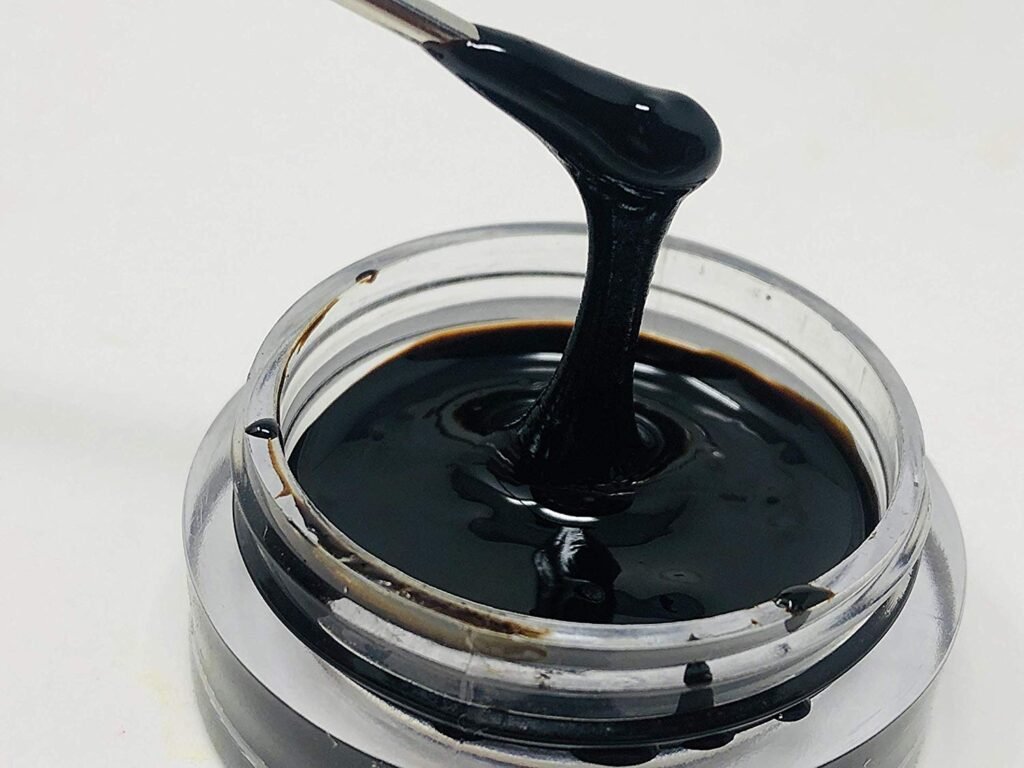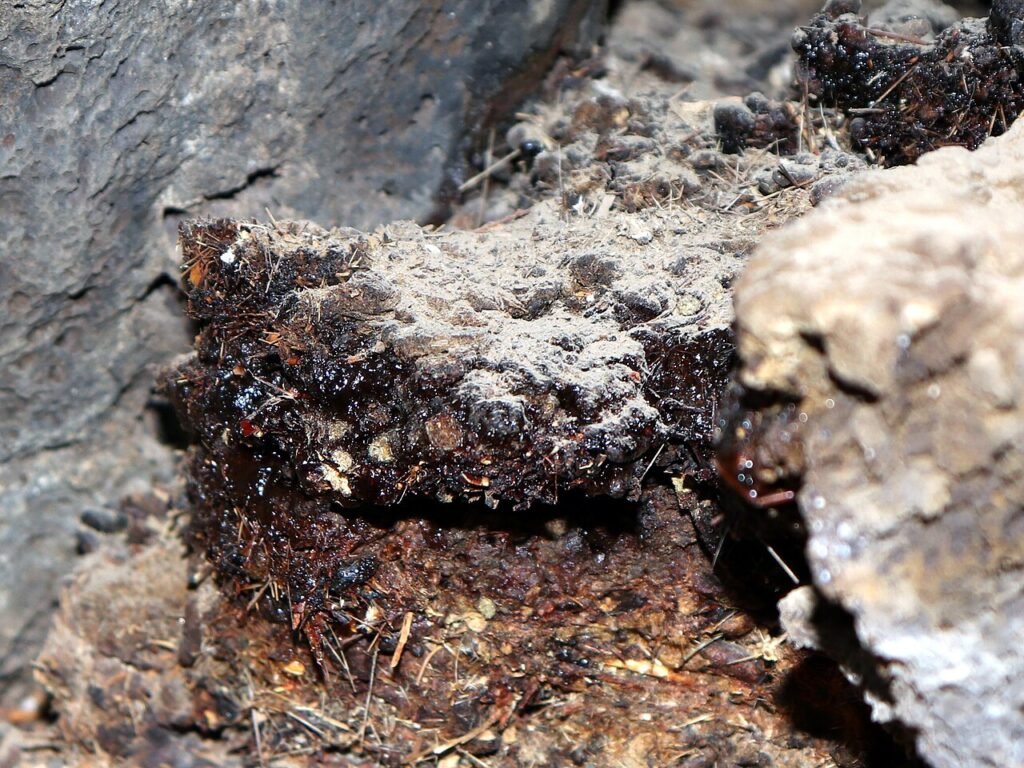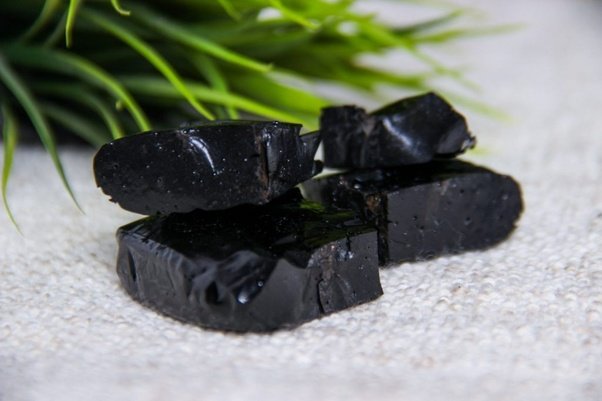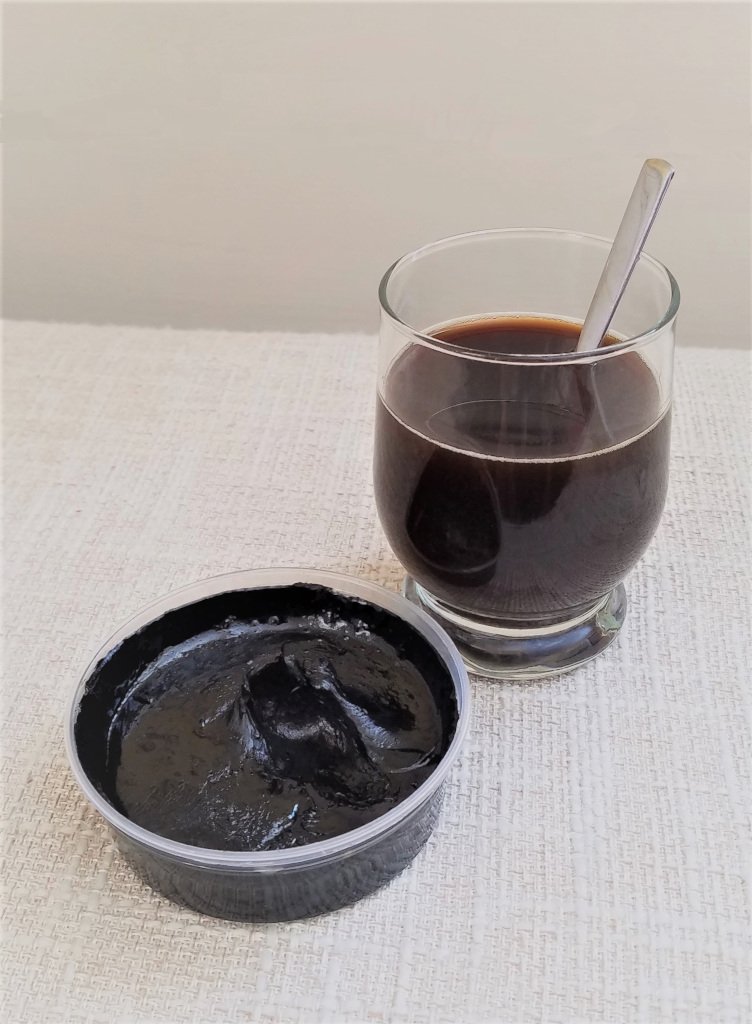
Shilajit: The Mysterious Mountain Resin with Potential Health Benefits
High in the Himalayas, where snow-capped peaks pierce the sky, a unique substance forms within the cracks and crevices of the rock faces. This blackish-brown, tar-like material, known as Shilajit, has been revered for centuries in traditional medicine systems like Ayurveda.
What is Shilajit?

Shilajit’s name comes from the Sanskrit words “shila” meaning “rock” and “jit” meaning “conqueror,” translating to “rock conqueror” or “conqueror of the mountains.” This aptly describes its origins. Over millennia, the gradual decomposition of plants, microorganisms, and organic matter trapped within the rock layers undergoes a complex transformation. Humic substances, fulvic acid, and a rich array of minerals are concentrated, forming the sticky, tar-like resin we call Shilajit.
The exact composition of Shilajit can vary depending on the geographical location where it’s sourced. However, it generally contains over 80 different minerals in ionic form, readily absorbed by the body. Fulvic acid, a key component, is thought to play a role in Shilajit’s potential health benefits by enhancing nutrient absorption.
Shilajit in Traditional Medicine

For centuries, Shilajit has held a prominent place in Ayurvedic medicine. It was used as a Rasayana, meaning a substance that promotes longevity and overall well-being. Traditional texts mention its use for various ailments, including:
- Chronic fatigue
- Altitude sickness
- Wound healing
- Digestive disorders
- Arthritis
- Infertility
Modern Science Explores Shilajit’s Potential
While traditional uses are vast, scientific research on Shilajit is still in its early stages. However, some studies suggest potential benefits in various areas:
Antioxidant and Anti-inflammatory Effects:
Shilajit’s rich fulvic acid content might contribute to its antioxidant and anti-inflammatory properties. These properties could be beneficial in managing conditions like arthritis and inflammatory bowel disease.
Cognitive Function:
Studies suggest Shilajit may improve cognitive function and memory.
Physical Performance and Recovery:
Some research indicates that Shilajit might enhance exercise performance and aid in recovery.
Fertility:
Shilajit may improve sperm quality and motility in men.
Iron Deficiency Anemia:
Due to its fulvic acid content, Shilajit may improve iron absorption, potentially aiding in iron deficiency treatment.
Important Considerations Regarding Shilajit
Despite its potential benefits, some crucial points to consider before using Shilajit include:
- Limited Scientific Evidence: While some studies show promise, more robust scientific research is needed to conclusively confirm Shilajit’s effectiveness for various health conditions.
- Dosage and Quality Variations: There is no standardized dosage for Shilajit. The quality and composition can also vary depending on the source. It’s essential to purchase Shilajit from a reputable supplier.
- Potential Side Effects: Shilajit may interact with certain medications. Pregnant and breastfeeding women, and individuals with specific health conditions, should consult a healthcare professional before using Shilajit.
How to Use Shilajit

Shilajit is typically available in various forms, including powder, capsules, and liquid extracts. The recommended dosage depends on the form and the intended purpose. It’s best to consult a healthcare professional for guidance on using Shilajit safely and effectively.
Conclusion
Shilajit is a fascinating natural substance with a rich history in traditional medicine. While scientific research is ongoing, some preliminary studies suggest potential benefits for various health concerns. However, it’s crucial to approach Shilajit with caution. Consulting a healthcare professional before use is vital to ensure its safe and appropriate incorporation into your health regimen.
Disclaimer: This blog post is for informational purposes only and should not be construed as medical advice. Please consult with a qualified healthcare provider before using Shilajit or any other dietary supplement.

